Turkey against the Kurds. Is there a new phase of conflict ahead?
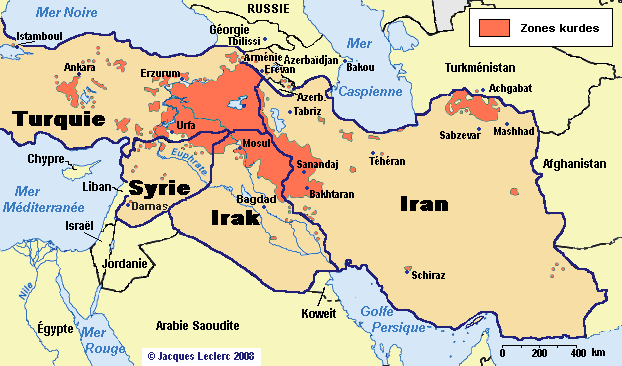
Turkey inflicted airstrikes on the positions of the Kurds
The reason for the sharp discontent of the Kurds was the actions of the Turkish armed forces, which caused several aviation strikes on the positions of Islamic State militants on the Syrian-Turkish border. However, in addition to attacking the positions of IS, the Turkish aircraft also attacked the positions of the Kurds, who are just fighting against the "Islamic State". Turkish Prime Minister Ahmet Davutoglu said that on Saturday night, the Turkish army attacked the positions of the armed forces of the "Islamic State" in Syria, as well as the positions of the Kurdistan Workers' Party in northern Iraq - in the Zap, Metina, Gara, Avashin, Sinat regions. Haftanin, Hakurk, Kandil. The attacks of the Turkish armed forces were carried out from the air and by means of artillery shelling. At the same time in the territory of Northern Iraq were destroyed warehouses with weapons and the camp of Kurdish refugees fleeing Iraqi Kurdistan from IS militants. Thus, the Turkish leadership has shown that for him both the “Islamic State” and the Kurdish national liberation movement are an equal adversary, and the Kurds represent almost a greater danger to Turkish statehood. Officially, the Turkish leadership stated that attacks on Kurdish positions were aimed at protecting the national security of the Turkish state. Therefore, the leadership of the Kurdistan Workers' Party and reported that the ceasefire agreement has lost all meaning in the current political situation. This statement of the PKK was a signal for action for the numerous Kurdish opposition in Turkey.
In turn, Ankara renewed political persecution of opponents, first of all - supporters of the Kurdish national liberation movement. The Turkish authorities reported conducting an anti-terrorist operation in the 13 provinces of the country, during which more than 250 people were detained. Among those arrested were Kurds - supporters of the Kurdistan Workers' Party. The operation was a response to the explosion that thundered on July 20 in the Turkish city of Suruc. The bomber, a Turkish student, allegedly a militant or sympathizer of the IG, fired an explosive device. The victims of the attack were 32 people, more than 100 people were injured. At the same time, most of the victims were Kurds - activists of a youth organization who were preparing to be sent to Syria, to the city of Kobani, where Kurdish armed forces are fighting with IG troops. The Kurds considered that the terrorist attack perpetrated by a Turkish student was made possible by the policies of President Recep Erdogan, indulging in radical fundamentalist groups. Hundreds of Kurds and supporters of the Turkish radical left-wing organizations sympathizing with them came to Taksim Square in Istanbul, accusing Erdogan of indulging in fundamentalists. In the cities of southeastern Turkey, riots broke out against the Turkish authorities. As a result of clashes with police forces, two Turkish policemen were killed. The intensification of repression against the Kurdish national liberation movement in Turkey, in fact, plays into the hands of the IG - after all, the Kurds represent one of the most active fronts against the IG in the Middle East. The Kurdish militia "Peshmerga" in the territory of Syria and Iraq over the past years has remained the most combat-ready opponent of the advancing IG units. When Turkey begins to strike at positions of the Kurdish armed forces in Iraq, and also conducts mass arrests of Kurdish activists who are the main support group for Syrian and Iraqi Kurds in the territory of Turkey itself, this only contributes to the real strengthening of the IG, even if the positions of the latter are inflicted Turkish air strikes and artillery. The Kurdish national liberation movement accuses Erdogan of actually inciting the IG against the Kurds, hoping that with the help of the fundamentalists, he will be able to do away with the powerful centers of resistance of the supporters of the independence of Kurdistan. On the other hand, in order not to provoke a negative reaction from the United States and European NATO allies, Erdogan masks his real goals with the formal participation of Turkey in military operations against the IS on the territory of Syria and Iraq.
The United States and European countries differed in their assessment
Almost immediately after it became aware of the Turkish army’s aviation and artillery strikes against Kurdish positions, Ankara’s actions were welcomed by the top leadership of the United States of America. So, from where "the wind blows", once again, without a twinge of conscience, the Americans themselves demonstrated. At a briefing in Nairobi, a representative of the American leadership supported the actions of Turkey and called the Kurdistan Workers' Party a terrorist organization. And this is despite the fact that as far back as 2008, it was removed from the list of terrorist organizations by the European Union, and Turkey is denied accession to the European Union precisely because of massive violations of the rights of the Kurdish population and the unresolved issues of national self-determination of the Kurds and the creation of at least Kurdish autonomy eastern regions of the country. The position of the United States is clear - the Kurdistan Workers' Party is a socialist political organization and, therefore, represents an absolutely “polar” ideology of American imperialism, besides, supported by both Assad Syria and the Soviet Union. Ben Rhodes, who is the deputy national security adviser to the president of the United States, said he supported Turkey’s efforts to fight the Islamic State and stressed that the United States maintains good working relations with the Kurdish government in northern Iraq, but considers the Kurdistan Workers' Party a terrorist organization. Accordingly, Turkey has the full right to fight the terrorist threat on its territory.
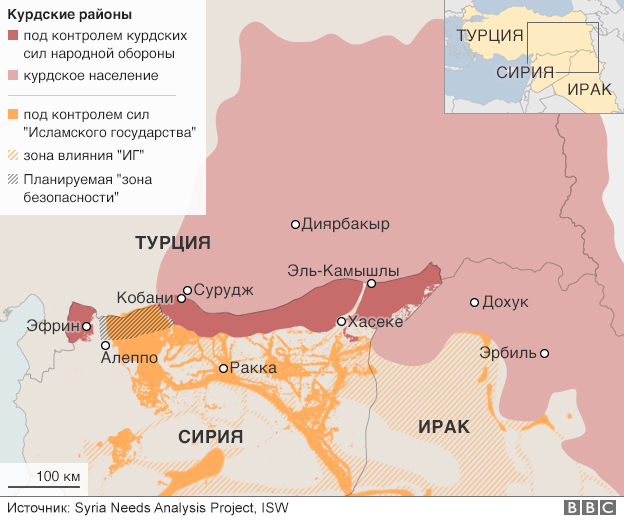
It is noteworthy that, unlike the United States, the European Union countries are not at all inclined to welcome the next round of aggression by the Turkish army against the Kurds. Condemning the airstrikes of the Turkish Air Force against the positions of the Kurdistan Workers' Party was made by the German Defense Minister Ursula von der Layen. She stressed that attention should be paid not to the Kurds, but to the “Islamic State”, and to hinder the activities of the latter, including joint efforts with the Kurds. The representative of the Green Party of Germany Jem Ozdemir noted that the Kurds are one of the most important opponents of the "Islamic state", therefore, in the conditions of the military-political situation in the Middle East, it is unwise to launch aggression against the Kurds who are holding back the IG. The weakening of the Kurds only plays into the hands of the “Islamic State,” said Jem Ozdemir, therefore Germany should explain to Turkey’s NATO partner the irregularity of its actions to resolve the “Kurdish problem”. The position of the German leadership is explained not only by the strategic interest of the Federal Republic of Germany in the IG confrontation in Western Asia, but also by the presence of one of the world's largest Kurdish diasporas in Germany. Angela Merkel, in a telephone conversation with her Turkish counterpart Ahmet Davutoglu, welcomed the efforts of Turkey in the fight against IS, however, she recommended a balanced attitude to solving the Kurdish problem and not postponing it. This indicates that Germany, unlike the United States, calls on Ankara to focus not on fighting the Kurds, but on confronting the "Islamic State." And there are reasons for this. Naturally, in the event of a further escalation of the conflict between Turkey and the Kurdistan Workers' Party, the consequences of the confrontation will inevitably affect the territory of the Federal Republic of Germany. In German cities, clashes between Turks and Kurds took place more than once, in which the leadership of Germany is extremely uninterested. At the same time, most of the German Kurds are made up of immigrants from Turkey. Many of them sympathize with the Workers Party of Kurdistan. According to German politicians, Turkey, instead of deploying a conflict with the Kurdish national liberation movement, should join forces with it and oppose the Islamic State, which is approaching Syria to the Turkish border. However, it is still unknown whether Recep Erdogan and his entourage will listen to quite reasonable recommendations from Berlin. For Ankara, the Kurds traditionally remain “the number one adversary,” since the self-determination of the Kurds, according to the Turkish authorities, will violate the territorial integrity of the country and undermine its political, economic and military might.
The dream of the freedom of Turkish Kurds
Recall that the Kurds remain the most numerous people of the world, not having their own statehood, but having a developed national identity and rich history. Tens of millions of Kurds live in Western Asia - in Turkey, Iran, Iraq, Syria, smaller groups also in the countries of the Caucasus, Afghanistan, Central Asia. Impressive Kurdish diasporas exist in most countries of Western Europe, in the Russian Federation. At the same time, the majority of Kurds - at least 20 million people - live in Turkey. The Kurds constitute the absolute majority of the population in southeastern Turkey, making up over 65% of the population, or more than 5 million. In Eastern Anatolia, Kurds make up at least 50% of the population, including in the center of Eastern Anatolia - about 80% of the population. About 2 million Kurds live in Istanbul and its environs, making up about 15% of the region's population. In addition, the Kurds settled in a number of other regions of Turkey. In addition, in the east of Turkey there is an ethnolinguist-related ethnos zaza, which is close in culture to the Kurds, numbering about 2 million. Zaza is closely associated with the Kurds and usually identify themselves with the Kurdish population of Turkey, including in political terms. The differences between the Turkish and Kurdish population are based on fundamentally different languages - the Turks speak Turkish, belonging to the Turkic group of the Altai family, and the Kurds speak Kurdish languages and dialects belonging to the Iranian group of the Indo-European family and are directly derived from the Median languages spoken inhabitants of the Ancient Mussel. The Kurds are one of the most ancient peoples of Asia Minor, who made a great contribution to the history of this region. There are differences in the confessional plane - among the Kurds, in addition to Sunni Muslims, there are a large number of followers of Alevism, the teachings of Al-e-Haqq and Yezidism - the ancient Kurdish religion, whose followers (Yezidis) identify themselves as a particular people and have very ancient and interesting traditions. With the consolidation of the Kurdish people in the struggle for their independence, religious and cultural differences between individual groups of Kurds, Zaza, Yezidis, fade into the background.
In accordance with the Sevres 1920 peace treaty between Turkey and the Entente countries, an independent state of Kurdistan was to be created. However, later, in 1923, the new Treaty of Lausanne was concluded, according to which the Treaty of Sevres was annulled. After the refusal of Turkey to grant the Kurds independence and even autonomy, in the 1920-s - 1930-s. there were several popular uprisings. However, due to the harsh, repressive policies of the Turkish authorities, the Kurdish movement in the country was crushed and Iraq became the center of the Kurdish resistance for some time. After the uprising of Kurds in Iraqi Kurdistan began in 1961, the Kurdish national liberation movement in Turkey was on the rise. Meanwhile, the Turkish authorities did everything possible to prevent the strengthening of the positions of the Kurdish national movement. For just one mention of the Kurdish problem in Turkey in the second half of the twentieth century, one could easily get a prison sentence. Thousands of activists of Kurdish social and political organizations were in the prisons of Turkey, and the population of the Kurdish areas in the east and southeast of the country was exposed to outright discrimination by the Turkish authorities and security forces. At the same time, it was the political upturn of the 1960's - 1970's. submitted the Kurdish problem for discussion not only Turkish, but also the world community. In Turkey itself, the problem of the Kurds interested, in the first place, the Turkish left, who were also subjected to harassment by the authorities.
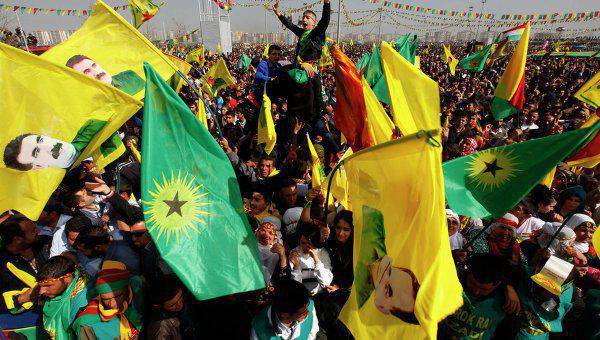
At the turn of 1960-x - 1970-x. the positions of the Turkish left against the Kurds and the Kurdish struggle for national self-determination shifted towards further deepening interaction with the Kurdish national movement. The Workers' Party of Turkey, which for a long time remained the largest left organization in the country that played the role of the Communist Party (the communist parties in Turkey were officially banned), for the first time stated that there was a Kurdish problem in Turkey and stressed that Kurdish residents are in the position of second-class citizens. At the congress in 1970 The Workers' Party of Turkey officially recognized the existence of the Kurdish people and declared its condemnation of the policy of the Turkish government towards the Kurds, aimed at assimilating this numerous people. However, the leaders of the Workers' Party of Turkey were in favor of solving the Kurdish problem within a single democratic state, therefore the party did not support the idea of complete independence of the Kurdish people, which was shared by the Kurdish radicals. Thus, the solution of the problem of the Kurdish population of Turkey was made directly dependent on the changing political and socio-economic situation in Turkey itself. Despite the fact that the RPT and many other left parties did not support the idea of full political independence of Kurdistan, there was a lot of progress in talking about the presence of the Kurdish people, whose existence was not recognized by the Turkish government for a long time, and about the existence of the problem of discrimination and assimilation of the Kurdish population in Turkey. At the same time, the policy of the Turkish leadership towards the Kurdish population of the country was described as fascist and racist, and the Kurdish people were called the victim of the reactionary measures of assimilation and discrimination undertaken by the Turkish government. Ultimately, the prohibition of the Turkish Workers Party by the government of the country resulted from the party’s position on the Kurdish problem. Meanwhile, at the end of the 1960's. a rather powerful and influential left-radical movement was formed among the Turkish youth. The Federation of Revolutionary Youth (“Devgench”) became the largest student left-wing radical organization in Turkey, and it was on its basis that a whole series of Turkish Maoist and Hevarist revolutionary organizations emerged. Most of the young Turkish leftists became disillusioned with the possibility of coming to power in the country peacefully and took the course of an armed struggle. At the same time, the Turkish left's critical perception of the Kemalism’s political line originating from Mustafa Atatürk. As a result, the concept of a “rural guerrilla”, adopted by the Turkish left from Mao Zedong and Che Guevara, was established among the left radicals in Turkey. Three main parties were formed, focused on the armed struggle against the Turkish regime - the People’s Liberation Army of Turkey under the leadership of Deniz Gezmish, the People’s Liberation Party - the Turkish Front under the leadership of Mahir Chayyana and the Turkish Communist Party (Marxist-Leninist) with the Turkish Workers' Liberation Army under guidance Ibrahim Kaypakkaya. Moreover, the first two organizations focused more on the experience of the Latin American revolutionary struggle, and Kaipakkaya was a staunch Maoist. The activities of the listed armed organizations ended tragically. All of their leaders were executed or died in battles with the Turkish police and government forces, after death, becoming literally “icons” for the Turkish youth left-wing radical movement.
Kurdistan Workers Party
The modern period of the struggle of the Turkish Kurds for national self-determination began in 1984 and is associated with the activities of the Kurdistan Workers Party (PKK) - the largest Kurdish national liberation organization in Turkey and one of the largest and most active and influential national liberation organizations in the world. The Kurdistan Workers' Party was created in 1978 and was a left-wing socialist party, but did not adhere to the Soviet-style Marxist-Leninist ideology. The founder of the Kurdistan Workers' Party was Abdullah Ocalan (born 4 on April 1949) - a native of the Kurdish peasant family of the village of Omerli, in Sanliurfa province, in the most southeast of Turkey, on the Syrian border. The family of Abdullah Omar Ocalan’s father did not differ in wealth and the young man had to leave his parental home and get a job in the city of Nizin. Being a talented and motivated guy, Abdullah Ocalan received a secondary education in Nizin, while working at harvest. Then he was able to enroll in a craft college and then, after graduation, he worked in the land cadastre in Diyarbakir. At the end of 1970, Ojalan was able to enter the Faculty of Political Sciences at Ankara University. In 1971-1974 He studied in Ankara, where he became interested in socialist ideas and created a political group of national socialist persuasion. Political activities prevented Ocalan from completing a full course of study at the Faculty of Political Science.
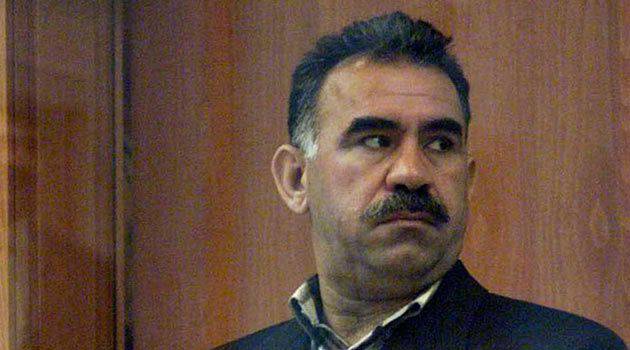
Communicating with socialist-minded youth, Ocalan participates in rallies and demonstrations. 7 April 1972 was arrested for the first time and placed in Mamak prison for 7 months. In the winter of 1975-1976. Ocalan wrote the Manifesto of the Kurdish Revolution, in which he outlined the basic principles of building a Kurdish revolutionary organization. In April-May, 1977, the city of Ocalan, toured the Kurdish settlements of Eastern Anatolia, after which he finally became convinced of the need to create a political party that would express not only the national, but also the social interests of the peoples of Kurdistan — Kurds, Armenians, and and Arabs. 27 November 1978 was held in the village of Fis, in the county of Lice, a constituent congress of the Kurdistan Workers' Party (PKK) was convened, at which Abdullah Ocalan was elected chairman of the party. From then until now, “Comrade Apo”, as Ocalan is called in the Kurdish environment, is considered to be the recognized leader of the Turkish Kurdistan national liberation movement and one of the most respected Kurdish politicians. In the Kurdish world, the scale of influence with Ocalan can, perhaps, be representatives of the Barzani family - the political leaders of the Iraqi Kurdistan national movement. By the way, it was the Iraqi Kurds who once betted on the United States and Israel, regarding them as important allies in the fight against the regime of Saddam Hussein. More or less peaceful relations have developed between the leadership of Iraqi Kurdistan and Ankara, which cannot be said about the Turkish and Syrian Kurds proper.
Before the 1980 military coup, Ocalan emigrated into Syria hostile to Turkey and began to form armed units in the Kurdish provinces of Syria that were to become the backbone of the national liberation army. In the middle of 1980's. The Kurdistan Workers ’Party already had the Kurdistan Liberation Peoples’ Controlled Army, which numbered thousands of fighters, and in 1984 began fighting against the Turkish government forces. The number of the Kurdistan Workers' Party by the middle of the 1980-ies. was at least 58 thousand people, but there were much more sympathizers among the Kurdish rural population, the Kurdish intelligentsia in the most different regions of Turkey. The confrontation of the Kurdistan Workers' Party with the Turkish government has continued for over thirty years. The Turkish authorities have always focused on a tough repressive policy towards the Kurdish population. The Kurds were even denied the right to be considered by the people, not to mention the possibility of teaching children in their own language or developing their own culture. The strategic line of Turkey in the sphere of national politics, since the time of Mustafa Atatürk, has been “Turkization” of the whole country. All ethnic minorities were supposed to be “graced”, dissolved in the Turkish nation, or create conditions for them that they would prefer to either Turkize or leave the country’s borders. In particular, since 1984, around 3000 Kurdish settlements were wiped off the face of the earth. Hundreds of thousands of Kurds were forced to leave the territory of Turkey, fleeing from political repression. It is the policy of the Turkish regime that is one of the most important reasons for the formation of a large Kurdish diaspora in the countries of Western Europe. By the way, in the “diaspora” countries, the Kurdistan Workers' Party has a great influence on the Kurdish migrant youth and regularly organizes performances against the policy of the Turkish regime in various cities of Western Europe.
In July, 1981 hosted the first conference of the Kurdistan Workers' Party, which brought together 80 representatives of party organizations. In August, 1982 held the second congress of the Kurdistan Workers' Party, at which it was decided to prepare for an armed uprising in the event of the refusal of the Turkish government to recognize the rights of the Kurds by peaceful means. The Kurdistan Workers' Party came out from the standpoint of socialism, inextricably linking the struggle for the national liberation of the Kurdish people with the struggle for the social liberation of all the peoples of Turkish Kurdistan. Ocalan has repeatedly stressed that the problems of the national liberation of Armenians, Assyrians, Arabs, Greeks are of no less interest to him than the problems of his own Kurdish people. According to the Kurdish leader, Turkey over the centuries of its history has assimilated a large number of Anatolian inhabitants, who originally belonged to other non-Turkic ethnic groups. Moreover, the policy of assimilation and non-recognition of the rights of national minorities in the country continues to this day. The victims of this policy are not only the Kurds, but also representatives of many other peoples of the country. The internationalist position of the PKK led to the fact that Armenians, Arabs, Assyrians, Greeks, as well as numerous foreign international volunteers, as a rule, leftist radical organizations in Europe, Latin America and Asia fought Kurds shoulder to shoulder with the Kurds. A large role in the armed struggle of the Kurdish people is also played by women, who constitute a significant part of the Kurdish armed formations. Ocalan has always stressed the importance of equal rights for women and called for the abandonment of the tradition of reducing the role of women characteristic of Kurdish and Turkish society. According to some information, in the armed forces of the Syrian Kurdish militia "Peshmerga" women make up 40% of the military personnel participating in battles with the forces of the "Islamic State".
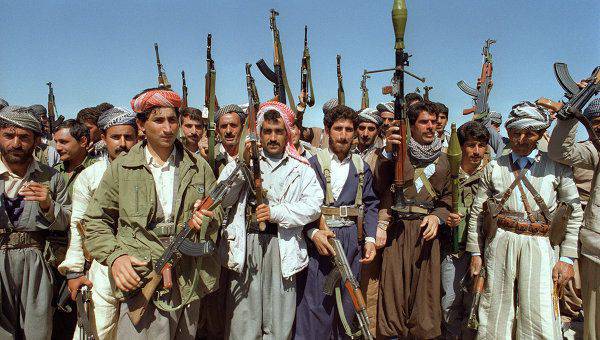
Prior to 1998, the city of Abdullah Ocalan, who enjoyed the support of the Syrian leadership, lived in Damascus. The main bases and training camps of the Kurdistan Workers Party were located in Syria. However, in October, 1998 Mr. Hafez Asad, not wanting to deteriorate relations with Turkey, nevertheless asked Ocalan to leave Syria and find himself a new refuge. Ocalan was looking for him in Greece, Italy and Russia, but all countries refused to accept the Kurdish leader. Despite the fact that the State Duma of the Russian Federation, by an absolute majority, supported the request of the Kurdish leader for political asylum in Russia, President Boris Yeltsin left the appeal unanswered. As a result, in February 1999, the city of Ocalan was kidnapped by Turkish and Israeli secret services in Kenya and handed over to the Turkish authorities. The PKK leader was sentenced to death, but then he was replaced by the death penalty with life imprisonment, which Ocalan, until now, is serving in prison on the island of Imrali in the Sea of Marmara. In fact, Öcalan plays the role of a hostage, through which the Turkish leadership hopes to influence the behavior of Kurdish political organizations in the country. Indeed, in recent years, the Turkish leadership, whose representatives entered into negotiations with the arrested Ocalan, has managed to achieve certain improvements in relations with the Kurdistan Workers' Party. Ocalan spoke in favor of establishing peace with Turkey and ending the bloody war that claimed the lives of thousands of Kurds and Turks. However, recent events on the Turkish-Syrian border seem to have violated the existing truce between the Turks and the Kurds. It should also be noted that not only members and sympathizers of the Kurdistan Workers' Party, but representatives of other Kurdish military-political organizations are taking part in the Kurdish armed struggle for independence. The Turkish government prefers to hush up the very fact that there are a number of armed organizations of national liberation in the country. In addition, the Kurds make up quite an impressive part of the activists of the Turkish left-wing political organizations, also focused on a radical struggle against the Turkish regime.
The tough policy of the Turkish authorities in relation to the Kurdish national liberation movement raises many questions from the world community. It is the Kurdish problem that is one of the main factors preventing the entry of Turkey into the European Union, the idea of which the government of Recep Erdogan actually refused. Finally, the Turkish army has repeatedly used unlawful methods of fighting against the Kurds, from torture and beatings in prisons to the use of chemical weapons. Thus, 11 in May 1999 during the battle of AONK (Army of the Liberation of the Peoples of Kurdistan) with Turkish troops in the area of the village of Bali Kaya, Turkish troops used chemical weapons, resulting in the death of 20 Kurdish partisans. Despite the fact that chemical weapons are prohibited by international conventions, NATO countries have silenced the fact of their use by the Turkish authorities against the Kurdish guerrillas. And this is despite the fact that the Iraqi leader Saddam Hussein's use of chemical weapons against Iraqi Kurds was very expensive - it was called one of his main war crimes. Despite the cruelty of the Turkish authorities against the Kurds, the Kurdistan Workers Party has repeatedly tried to reach a peace agreement with Ankara. The first truce was announced on March 19 1993 - at a press conference that Ocalan, together with the leader of the Patriotic Union of Kurdistan, Jalal Talabani, gave in Lebanon, in the province of Bekaa. Moreover, the first truce was one-sided and lasted until 15 on April 1993. After Turkish President Turgut Özal, who was one of the initiators of the truce with the Kurds, 17 on April 1993 died of a heart attack, Turkish troops stepped up their attack on the Kurdish positions, after which The Kurdistan Workers Party was forced to suspend the truce and resume hostilities against the Turkish government forces. Thus, a new phase of armed confrontation began, accompanied not only by fighting in the mountains of Turkish Kurdistan, but also by a wave of terrorist attacks in Turkish cities.
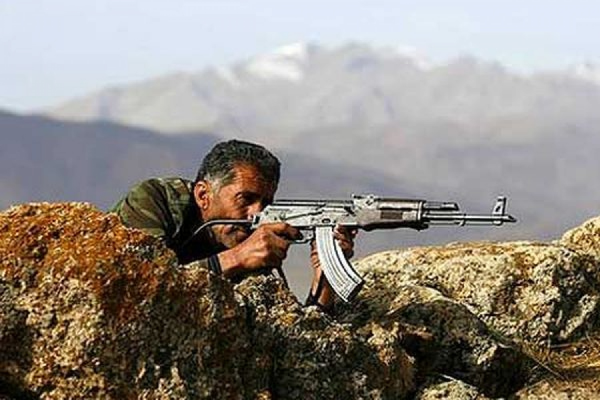
Two and a half years later, 15 December 1995, a second truce was announced. After Öcalan received a letter from Turkish Prime Minister Tansu Chiller, the Kurdish leader declared a second truce, however after January 16 1996 Turkish soldiers shot a minibus with 11 civilians, then blamed the Kurds for the incident, the truce was terminated. 6 March 1995 city Turkish special services organized an attempt on Ocalan, which was the final reason for the further escalation of the Turkish-Kurdish conflict. However, 1 September 1998 followed by a third truce - it was a response to the request of the Prime Minister of Turkey Erbakan. However, 15 February 1999, after Abdullah Ocalan was captured by the Turkish secret services in Kenya, the truce was broken and the Kurds began to avenge the arrest of their leader. 2 1999 of August The Kurdistan Workers Party announced the withdrawal of troops from the territory of Turkish Kurdistan to Iraqi Kurdistan, and on September 1 announced a new truce. It lasted for about five years and was interrupted in June 2004, when the leadership of the Kurdistan Workers' Party realized that the Turkish government still refuses to fundamentally solve the problem of national self-determination of Kurds and other peoples of Turkish Kurdistan. However, 1 September 2006 The Kurdistan Workers' Party announced the conclusion of a fifth truce, thus responding to the requests of Kurdish public figures, both Turkey and the diaspora. In March, the 2009 a moratorium on hostilities was announced before 1 June 2009, and 29 September 2009. The moratorium was extended indefinitely. The refusal of the Kurdistan Workers 'Party to combat actions contributed to the cancellation of the decision to include the Kurdistan Workers' Party in the list of terrorist organizations. 3 April 2008 city The European Court overturned the decision recognizing the PKK as a terrorist organization. The Kurdish political organizations of Turkey demanded that the Turkish government review the law on countering terrorism, reduce the electoral barrier, and distribute state support among all political parties. However, the political course of the Turkish government contributed to the renewal of demands - now the Kurds demanded the release of political prisoners, the introduction of democratic autonomy to Turkish Kurds, which caused Erdogan’s sharp refusal from further negotiations with the Kurds. After the parliamentary elections 2011 the situation has changed - the Kurds were represented in the parliament, after which the Kurdish mine action was one of the subjects of the constitutional reform process in Turkey. However, the Kurds did not succeed in achieving autonomy and the release of political prisoners. Therefore, in 2012 63 political prisoners went on a hunger strike, joined by several hundred people. The protesters demanded a softening of the regime for Ocalan and the provision of opportunities to receive education and conduct litigation in the Kurdish language. Kurdish movement in Turkey during the 2000-ies.
The current situation on the Turkish-Syrian border and the airstrikes of the Turkish troops on the PKK positions seem to have disturbed the existing balance of power and could lead to a further deepening of the conflict. The bases and depots of the Kurdistan Workers' Party in the Kandil mountains are subjected to air strikes, which Turkish Foreign Minister Mevlut Cavusoglu explains only by the need to fight terrorism and protect Turkey’s national security. Turkish President Recep Erdogan argues that it is not possible to peacefully resolve the situation with the Kurds, since the latter continue to pose a threat to the national security of the Turkish state. According to the official line of the Turkish authorities, the PKK is the same terrorist organization as the IS, so the Turkish army will continue fighting against the Kurdish formations on the Turkish-Syrian border. In turn, the Syrian government has already described the actions of Ankara as an attack on the territory of Syria under the pretext of fighting the IS. The Syrian authorities fear that Turkey has launched its long-term plan to create a “security belt” in northern Syria in order to protect its territory from the neighborhood with the bases of the Kurdistan Workers' Party and the “Islamic State”. Plans to create a buffer zone in the north of Syria are actively supported by the United States of America.
Information